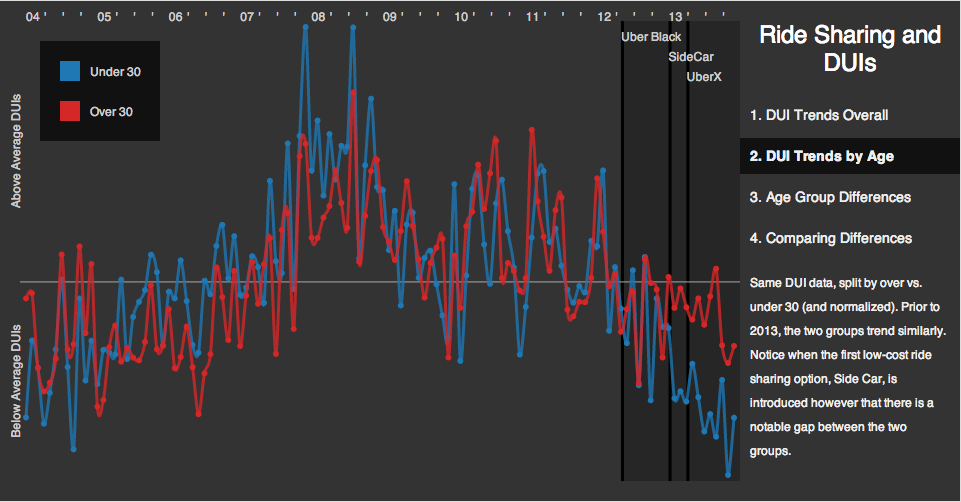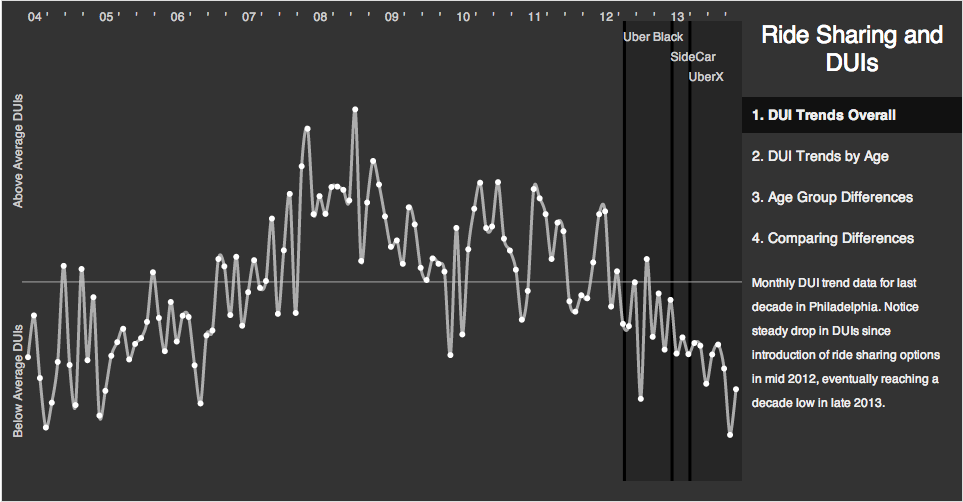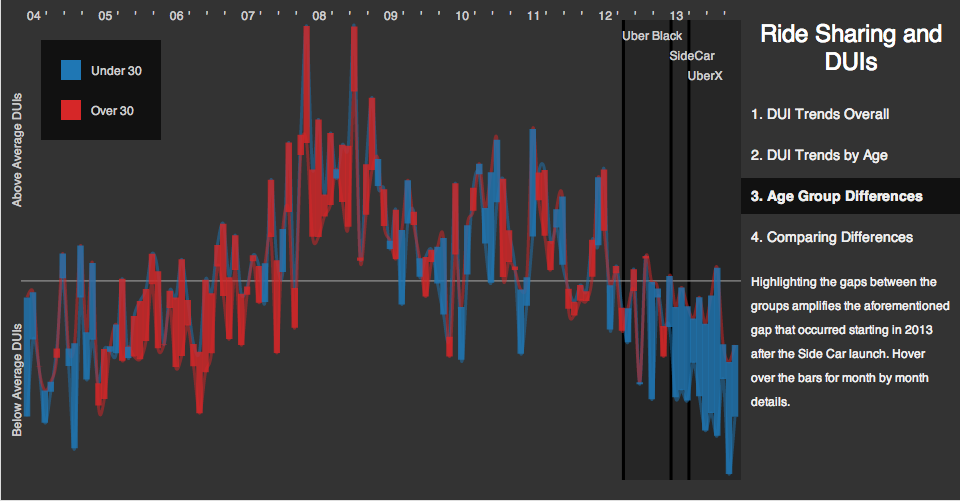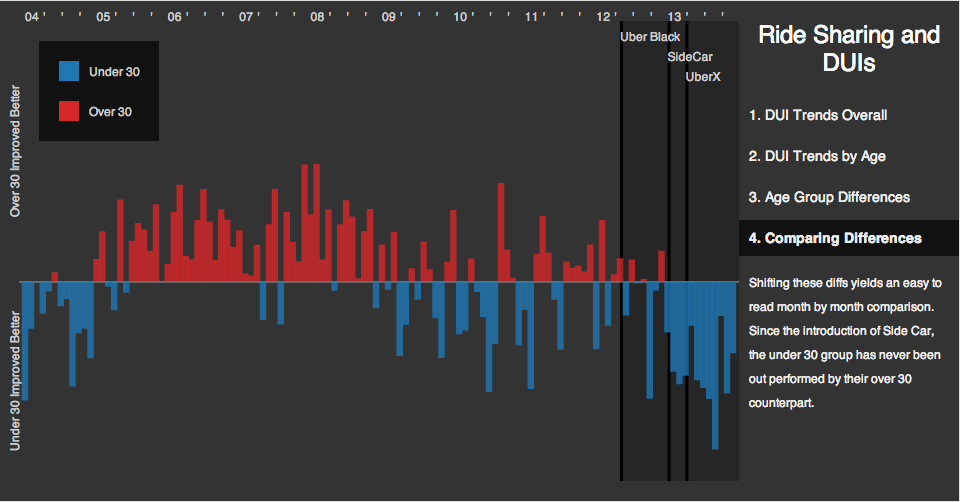Coincidence? Philly’s had fewer DUI arrests since ride-sharing apps arrived

Philadelphia has largely been left out of Pennsylvania’s fight over e-hailing apps, and the story hasn’t gotten too much coverage over on our side of the state, so here’s the quick backstory.
Pittsburgh’s new Mayor, Bill Peduto, ran on shaking up the taxi market in Pittsburgh (where Yellow Cab enjoys a legal monopoly), and after he got into office he invited in e-hailing apps Lyft and Uber X, which allow regular drivers to rent the empty seats in their cars to strangers via a smartphone app.
In doing so, he picked a fight with the state Public Utilities Commission, which regulates the taxi market in Pittsburgh and other cities, but not Philadelphia, in Pennsylvania. The latest development is that PUC judges have issued a cease-and-desist order to the companies, barring them from operating in the state. State senator Wayne Fontana – a Peduto ally – introduced a bill today that would go over PUC’s head and legalize the services by creating a “transportation network company” category in the Pennsylvania code. The idea is to tailor regulations specifically to the e-hailing apps, rather than treat them like regular taxis.
One open question is whether the changes will apply to Philadelphia’s taxi market as well. Philadelphia’s taxi regulator is the Philadelphia Parking Authority which, like the PUC, has also not taken kindly to e-hailing apps. Last summer PPA kicked out Sidecar, which uses essentially the same business model as Lyft and Uber X.
Uber Black operates in Philadelphia, because it’s technically a livery service, but its cheaper Uber X counterpart only services South Jersey to avoid the PPA, which regards the e-hailing app as an illegal taxi service. Interestingly, it’s still legal for Uber X to drive people from New Jersey into Philly. It remains to be seen whether PPA will embrace the new “transportation network company” category, or whether state lawmakers have any interest in making them use it, since PPA is controlled by the state just as PUC is.
This issue raises some legitimately challenging questions about safety and liability, but to date there hasn’t been much discussion about the safety implications of not allowing these apps.
Pittsburgh-based computer science professional Nate Good has been trying to move this debate forward in his city, and he released a few infographics he made about ride-sharing and DUI arrests in Philly (where, unlike Pittsburgh, the companies have been around long enough to draw some conclusions about their impact.) What he found is that there’s a correlation between ride-sharing services coming on the market and a reduction in DUI arrests, particularly for the under-30 demographic that uses them the most:
After all ride sharing services were in effect (April 2013 through the end of 2013), the average number of DUIs per month dropped across the board by 11%, with those under 30 being mostly responsible for the drop:
-
Overall: 1121.9 (11.1% decrease)
-
Under 30: 450.9 (18.5% decrease)
-
Over 30: 671 (5.3% decrease)
These findings are more of a debate-opener than a debate-ender, so we’re interested in hearing what you think.
Is there are really a causal story here? Or is this simply a matter of under-30 Philadelphians driving less in general?
WHYY is your source for fact-based, in-depth journalism and information. As a nonprofit organization, we rely on financial support from readers like you. Please give today.









